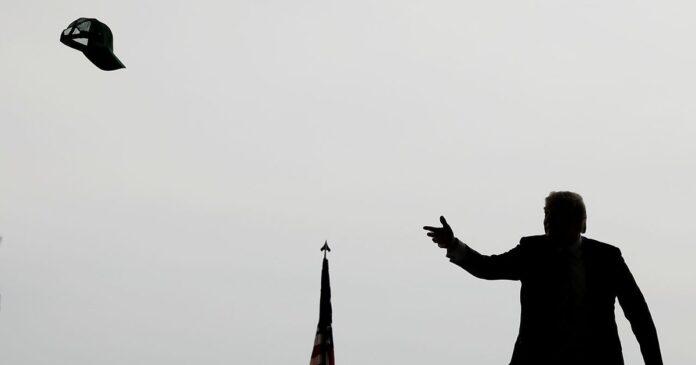Author: Anne Applebaum
Affiliation: the SNF Agora Institute at Johns Hopkins University
Organization/Publisher: The Atlantic
Date/Place: March 31, 2022/USA
Type of Literature: Article
Word Count: 2075
Keywords: Liberal World Order, Liberal Democracies, Global Kleptocracy, and the Russian Invasion of Ukraine
Brief:
Polish-American historian and journalist Anne Applebaum argues that there is no natural liberal world order, as well as no rules-based order without someone imposing them, and that “unless democracies defend themselves, the forces of autocracy will destroy them”. China (which Americans understandably focus on) is not the only autocratic force in the world. There is also Russia, which remains at war with “us” as long as it is under Putin’s rule, in addition to a group of other autocracies around the world that fear the language of democracy because it is dangerous to their form of autocratic power. The author urges liberal democracies to dispel the delusion of a liberal-world-order existence that preserves world peace and prevents the recurrence of the “great genocides” and devastating wars in history. She suggests a set of recommendations urging democracies to work together to repel the forces of autocracy, especially after the Russian invasion of Ukraine has demonstrated the absence of a liberal world order that could impose peace.
In the beginning, the author refers to the illiberal vision that Russia has been developing since the fall of the Soviet Union and even preparing to implement. Imperialist nostalgia persists among Russian leaders at a time when fears have remained strong and prevalent among the governments of Eastern and Central Europe about the Russian threat, which has made these countries rush to join NATO. At the same time, successive US administrations since the end of the Cold War have not been interested in arming the new members or enhancing their security, nor has anyone in the Western world felt any Russian threat for the past 30 years. Rather, it was engaging in partnerships with Russian oil and gas companies and with the corrupt Russian oligarchy. Thus, the West has enriched and strengthened the elites of the Russian kleptocracy. Western democracies did not see the enrichment of autocrats as detrimental and assumed that trade with them would transform their regimes and societies, thinking that “wealth would bring liberalism. Capitalism would bring democracy—and democracy would bring peace”. After the World War II catastrophe, Europeans and Americans thought that they had built a liberal order based on a set of rules that would preserve peace not only in Europe but in the entire world. The biggest delusion is their belief that such an order will not allow a repeat of the genocides that took place before, that “never again would large nations erase smaller nations from the map. Never again would we be taken in by dictators who used the language of mass murder.” While the democracies were living in this delusion, Russia’s leaders were rebuilding a powerful army and propaganda machine designed to facilitate mass murder and a mafia state controlled by a few men, unlike Western capitalism. The biggest problem was that the custodians of the liberal world order refused to understand these changes. They did not realize the magnitude of the threat posed by the autocratic forces, despite what they had done in Chechnya, Syria, and in the West itself where they have managed to buy politicians, fund far-right movements, and run disinformation campaigns during US and European elections. “We didn’t believe that we were at war with Russia. We believed, instead, that we were safe and free, protected by treaties, by border guarantees, and by the norms and rules of the liberal world order.” With the recent Russian invasion of Ukraine, this delusion of liberal democracies was revealed.
In the second part, the author urges liberal democracies to work together in their battle against autocracy, and proposes a set of measures that would enable them to win this battle. On the military and security levels, the battle requires armies, long-term strategies, and close cooperation between allies across the world, not only in Europe. NATO should start operating as it did during the Cold War, assuming that invasion could happen at any time and that democratic countries should increase their defense budgets. The author also calls for the creation of new institutions to raise the level of military and intelligence coordination and to enhance the capacity of liberal democracies to communicate with the world. On the media and cultural levels, the author proposes the creation of Russian-speaking TV channels to compete with Putin’s propaganda, and channels in Mandarin and other languages to reach the people of the world. It is necessary to know more about the Russian people and others to influence their knowledge and cultural preferences. Democracies should rethink education and culture and invest in establishing Russian-language universities in Eastern European countries, especially to house Russian intellectuals. Democracies should spend more on teaching Arabic, Hindi, Persian and other languages, in order to reformulate educational programs for a different era and prevent autocracies from withholding knowledge from their citizens and distorting it. On the economic and commercial levels, regulations and laws should be established in order to fight global kleptocracy, as trading with autocrats promotes autocracy, not democracy. Democracies need to radically and profoundly transform their energy consumption and search for other alternatives instead of being dependent on autocracies and giving them billions of dollars in exchange for energy. Finally, liberal democracies must foster democracy within their own societies, to prevent self-destruction from divisions and demagogues. They should learn from Ukrainians today how to maintain both liberal values and patriotism, as well as to overcome political divisions in times of great challenges. Since “there is no liberal world order, no norms, and no rules, we must fight ferociously for the values and the hopes of liberalism if we want our open societies to continue to exist.”
By: Djallel Khechib, CIGA Senior Research Associate




